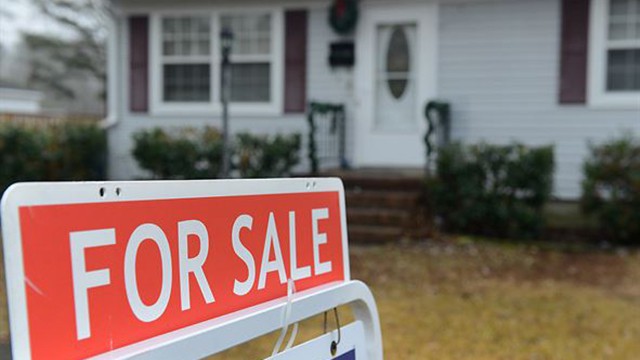Here’s Exactly How Much it Costs to Buy a House in Halton
Published July 6, 2018 at 2:42 am

If you’re about to go house hunting in Oakville, Burlington or Milton this summer, you are not alone–people are overcoming their real estate (fears spurred by a volatile 2017 and subsequent govern
If you’re about to go house hunting in Oakville, Burlington or Milton this summer, you are not alone–people are overcoming their real estate (fears spurred by a volatile 2017 and subsequent government policy initiatives aimed at cooling the market) and getting back into the exciting (it’s truly never boring) world of home buying.
The Toronto Real Estate Board (TREB) recently announced that GTA realtors reported 8,082 home sales through TREB’s MLS system in June 2018 – up 2.4 per cent compared to the low June 2017 result.
TREB says that after preliminary seasonal adjustment, sales were also up 17.6 per cent on a monthly basis between May 2018 and June 2018.
“Home ownership has proven to be a positive long-term investment. After some adjustment to the Fair Housing Plan, the new Office of The Superintendent of Financial Institutions (OSFI) stress test requirement and generally higher borrowing costs, home buyers are starting to move back into the market, with sales trending up from last year’s lows,” says Garry Bhaura, TREB president.
“Market conditions appear to be tightening, with sales accounting for a greater share of listings, as new listings have dropped compared to last year.”
As far as house prices go, they’re generally stable–which, though potentially discouraging for buyers hoping for slightly more affordable properties, is likely comforting to sellers.
TREB says the average selling price edged up by two per cent on a year-over-year basis to $807,871 in June 2018.
“After preliminary seasonal adjustment, the average selling price was also up by 3.3 per cent month-over-month between May 2018 and June 2018,” TREB says. “The MLS Home Price Index (HPI) was down by 4.8 per cent on a year-over-year basis, but remained basically flat month-over-month.”
In terms of numbers specific to the entire GTA, a detached house in the 905 currently costs about $928,560 (slightly down from $929,401 in May). A semi costs about $665,606 (slightly down from $665,628), towns are selling for $608,969 (a little down from $609,923) and condos are costing buyers about $450,672 (down from $455,413).
TREB expects sales activity to pick up.
“The expectation is to see improvement in sales over the next year. Over the same period, however, it is likely that issues surrounding the supply of listings will persist,” says Jason Mercer, TREB’s director of market analysis and service channels.
“This suggests that competition between buyers could increase, exerting increased upward pressure on home prices. With a new provincial government in place and municipal elections on the horizon, housing supply should be top-of-mind for policy makers.”
As far as policy makers go, TREB says it will continue to speak out for buyers, sellers and renters–especially as Ontario adjusts to a new provincial government and municipal elections get underway.
“We look forward to working with all returning and newly elected MPPs, and speaking out during the municipal election campaign, to ensure that home ownership and housing affordability issues are a top priority for elected officials,” says Bhaura.
“In this regard, one of the most important issues is ensuring that no new municipal land transfer taxes are imposed on home buyers. We hope the new provincial government and municipal election candidates will represent the views of the people on this issue, which are clear: they oppose land transfer taxes because they are a barrier to home ownership and discourage individuals and families from ‘right-sizing’, further constraining the supply of homes available for purchase.”
TREB says a poll conducted by Ipsos Public Affairs by an online survey of 1,200 GTA residents (500 in the 416 area code and 700 in the 905 area code) between May 18 and May 22 found that 77 per cent of respondents support reducing the provincial land transfer tax and 68 per cent support repealing the provincial land transfer tax
The poll also revealed that 76 per cent of respondents support reducing the Toronto municipal land transfer tax and 69 per cent support repealing the Toronto municipal land transfer tax
“We look forward to working with the provincial and Greater Toronto Area municipal governments on effective ways to address housing affordability, namely increasing housing supply, especially ‘missing middle’ housing options (home types that bridge the gap between detached houses and condominium apartments), and reducing tax burdens like land transfer taxes,” says Bhaura.






